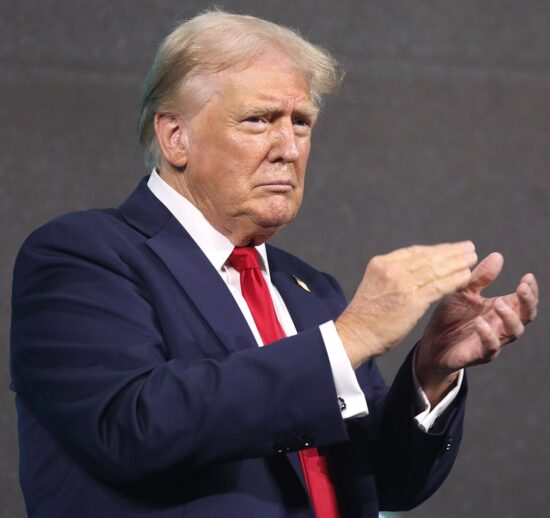US President Donald Trump has declared that he has signed legislation compelling the release of government files connected to the late convicted sex offender Jeffrey Epstein.
Under the new law, the US Department of Justice must disclose within 30 days all materials it holds concerning investigations into Epstein. Some records, however, may still be withheld if they are part of ongoing inquiries or if their release is judged to infringe on personal privacy.
Trump’s move reverses his earlier resistance to making the files public, a stance he abandoned following pressure from Epstein’s victims and several prominent Republicans. With Trump’s endorsement, the bill swiftly passed both chambers of Congress earlier this week by overwhelming margins. Until recently, Trump had argued that releasing the documents was unnecessary, describing the effort as a Democrat-driven “hoax” meant to “distract” from Republican achievements—a stance that itself contradicted the position he held before the 2024 election.
“Maybe the truth about these Democrats, and their dealings with Jeffrey Epstein, will finally come out, because I HAVE JUST SIGNED THE BILL TO RELEASE THE EPSTEIN FILES!” Trump wrote. Despite the fact that a congressional vote was not required—Trump could have ordered the release unilaterally—the House approved the bill 427–1, and the Senate passed it unanimously before sending it to the president’s desk.
The records set for release consist of investigative materials from federal probes into Epstein, including transcripts of interviews with victims and witnesses, along with evidence collected from searches of Epstein’s properties. They also encompass internal justice department communications, flight manifests, and the names of individuals and organizations connected to his activities.
These files are separate from the more than 20,000 pages of documents made public by Congress last week from Epstein’s estate, some of which reference Trump directly.
Among those documents were 2018 communications in which Epstein claimed: “I am the one able to take him down” and “I know how dirty Donald is.”
Trump and Epstein were acquaintances for years, but the president has said that their relationship soured in the early 2000s, roughly two years prior to Epstein’s first arrest. Trump has repeatedly insisted he had no improper involvement in Epstein’s crimes.
Speaking with reporters on Monday night, Trump maintained that Republicans were uninvolved in Epstein’s activities.
“It’s completely a Democrat issue,” he said. “The Democrats were Epstein’s friends—every one of them.”
The family of Virginia Giuffre—who died by suicide earlier this year—praised the signing of the legislation, calling it “nothing short of monumental” for Giuffre and other survivors.
“As we move ahead, we remain on guard. This is far from over. Every single name must be made known, regardless of influence, wealth, or political allegiance,” her brother and sister-in-law, Sky and Amanda Roberts, said.
Epstein was found dead in his New York jail cell in 2019, with his death ruled a suicide by a medical examiner. He had been awaiting trial on sex trafficking charges and was previously convicted in 2008 for soliciting prostitution from a minor.
The disgraced financier maintained connections with numerous prominent individuals, including Andrew Mountbatten-Windsor, the former prince and brother of King Charles; Trump; former Trump advisor Steve Bannon; and an array of other figures from media, politics, and entertainment.
On Wednesday, former Harvard president Larry Summers stepped away from teaching duties while the university reviewed his relationship with Epstein, which surfaced in a series of friendly email exchanges.
Under the newly signed law, Attorney General Pam Bondi must release “all unclassified records, documents, communications, and investigative materials” tied to Epstein and his accomplice Ghislaine Maxwell within 30 days. Maxwell is currently serving a 20-year prison sentence for sex trafficking.
Still, the legislation allows for certain redactions if the material would violate personal privacy protections or interfere with active investigations.
Bondi is also permitted to withhold information that could compromise federal investigative efforts or expose victims’ identities.
Republican Congressman Thomas Massie—one of the bill’s sponsors—voiced concern that the carveouts could be used too broadly.
“I worry that [Trump] is triggering a rush of new investigations, and that these could be used as justification for withholding the files. That’s what concerns me,” he said.
Epstein’s 2019 death, ruled a suicide while he awaited trial, continues to fuel public suspicion. His network of contacts—which included high-ranking political, academic, and cultural figures—remains under intense scrutiny as calls for full transparency grow louder.






